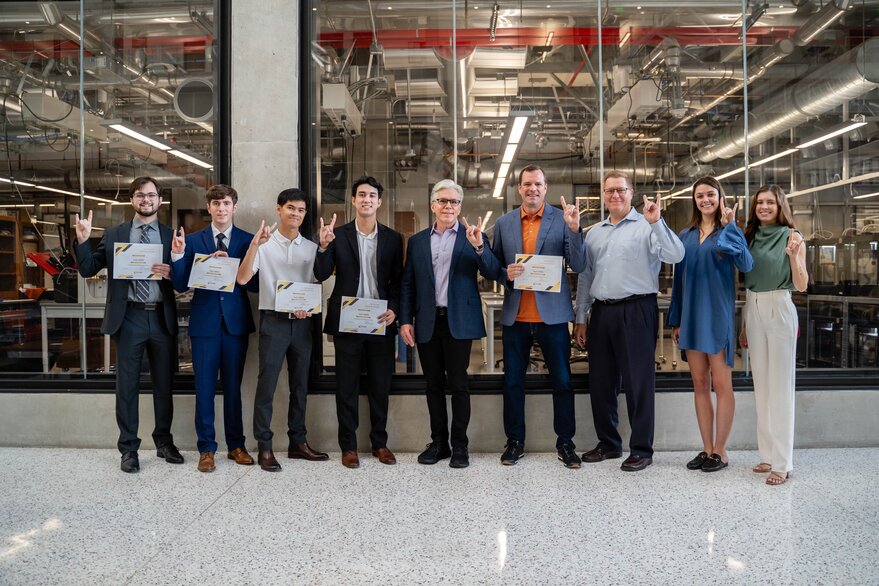SAN FRANCISCO – The SmallSat Alliance celebrated the winners Aug. 15 of its first annual Collegiate Space Competition in Austin, Texas.
First place went to a University of Texas team seeking to indirectly measure vegetation water content and predict nitrogen content. Data collected by the Soil moisture And Nitrogen Detection Satellite, known as SANDS, could be used to monitor plant growth, warn of droughts and measure soil salinity. In addition, mapsof SANDS data could reveal changing environmental conditions.
“A lot of people don’t realize that microbes in healthy soil are a huge carbon sink,” SmallSat Alliance Chairman Charles Beames told SpaceNews. “They pull tons of carbon out of the air. Being able to detect nitrogen-deficient soils around the world could go a long way toward mapping areas and reclaiming healthy soil.”
The SmallSat Alliance established the Collegiate Space Competition in 2022 to raise the profile of the entrepreneurial space sector and attract talent.
Solving Environmental Problems
“The prize winners took a holistic approach,” Beames said. “The teams of evaluators were impressed with the ability of these young people, who are clearly interested in engaging in the world and helping solve problems.”
Another University of Texas team claimed second place for a plan to collect and store orbital debris. The Bio-friendly Recycling Operation of Orbital Material, known as BROOM, includes one satellite to gather debris and a second satellite to store it in bags for future recycling.
Clearing the Rubble
Coming in third was North Carolina State University with its Rubble Attachment and Conveyance CubeSat. RACC is three-unit cubesat built with commercial components to capture orbital debris.
A team from Liberty University won honorable mention for its CubeSat Solution for Space Debris. The proposed satellite would move in front of space debris and impact it, changing its orbit and causing it to burn up in Earth’s atmosphere within a year.
SANDS contributors were Chan Mondole, Colin Madden, Melissa Sells, Nicholas Heard and Christopher Renfro. BROOM contributors include Aubrey Baker, Diana Segura Lerma, Madison Vaughan and Mauricio Martinez Elizondo.
Jeshua Ray, Peter Zheng, Joshua Boyd, Caden Bjorndahl and Jordan Gonzaga proposed RACC. The Liberty University team included Brendan Riding, Sara Schweitzer and Joshua Velez.
